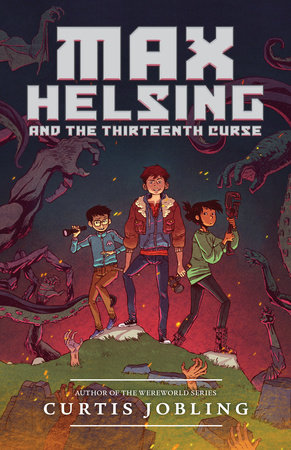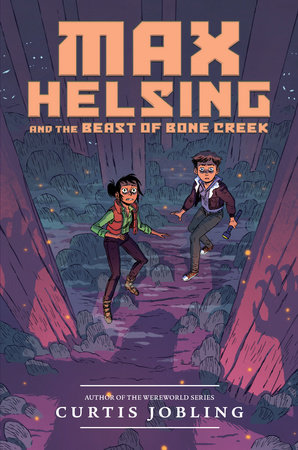A Good Scare: How Horror Books Can Help Kids Conquer Their Fears
by Curtis Jobling
I blame my imagination. That was the principal reason I was such a colossal scaredy-cat as a child. It didn’t matter what I heard, or saw, or read, my unconscious had an uncanny way of intensifying anything remotely frightful. If I saw tree-branch shadows playing across my window at night, they were always giant skeletal fingers. If I heard something moving through the undergrowth at dusk, you could bet your bottom dollar it was a werewolf stalking me. And don’t get me started on the things that lurked in the graveyard around the corner from the house I grew up in.
Fear is such a commonplace emotion, particularly for children, and yet it’s the emotion that gets all the bad press. Sure, you can have fiery, furious Anger; gleeful, happy-clappy Joy; weeping and wailing Sadness; and disapproving Disgust, but for some reason Fear is the one that folks don’t want to talk about or explore, especially with children. This is folly, and I’m going to try and explain why.
Childhood can be scary. Not in a monstrous sense, but certainly as a world into which children are taking tentative steps. It can be an intimidating, frightening place, sometimes with genuine scares to contend with. Learning how to face one’s childhood fears for the first time is a rite of passage. Where better to start to do that than within the pages of a good book?
Unlike movie frights, which can feel all-encompassing and leave a mark on young viewers long after the last scene, book scares are easier to manage. A book won’t chase you. It won’t leap out and make you jump. Tasting terror from within the confines of a book provides the reader with a vicarious thrill, one which they’re in complete control of. If a story proves scary, shut the book. If it’s really scary, throw the book in the chest freezer in the garage! By reading scary stories — page by page, chapter by chapter, at their own pace — kids can contend with their fears. It’s confidence-building to be bold and conquer the things that frighten us — and a scary book can help kids do just that.
The other great thing about horror is that it can get a child reading. The adrenaline-fuelled kick that a fright brings with it can fire a lifelong love of literature. It’s the reason I gravitated to anything and everything that featured monsters when I was a boy. Sure, they scared me, but they also kept me turning the pages, seeking out that next fright, excited to see and feel what came next. I would talk about those scares with my friends and my family, with my folks and my teachers. My poor school librarian would get an earful from me. She was probably fed up of hearing about trolls and goblins and vampires and zombies. My love of reading helped me work through my fears, both real and fictional. And in turn, my interest in reading scary tales helped grow my love of reading, and ultimately my love of writing.
My Max Helsing books feature the exploits of a boy born into a world of monsters, where horrors await him at every turn. Only our hero isn’t frightened by them for the most part. He’s been around them all his life. Max gets them — it’s humans he doesn’t understand! But for Max’s friends — gearhead Syd Perez and homeschooled Wing Liu — these terrors are new and, understandably, scare the pants off them. Syd and Wing have to conquer their fears in each of these stories, battling the things they’re afraid of and coming out the other side stronger and happier. As an author, fear in a story brings my readers closer to my heroes: they empathize with them, they feel the same sense of panic, of dread. When Max and his friends defeat their demons, that’s a moment of triumph for the reader too.
In closing, I should probably add: I still get nightmares to this day. Only now they don’t really scare me. They’re like private viewings of an original horror movie, meant only for my giddy eyes. I get a thrill from them. That’s because I know they’re not real. I know I’m going to wake up. Like a scary book, the fright is fleeting, but the enjoyment remains.
-
Books by the Author:
-


